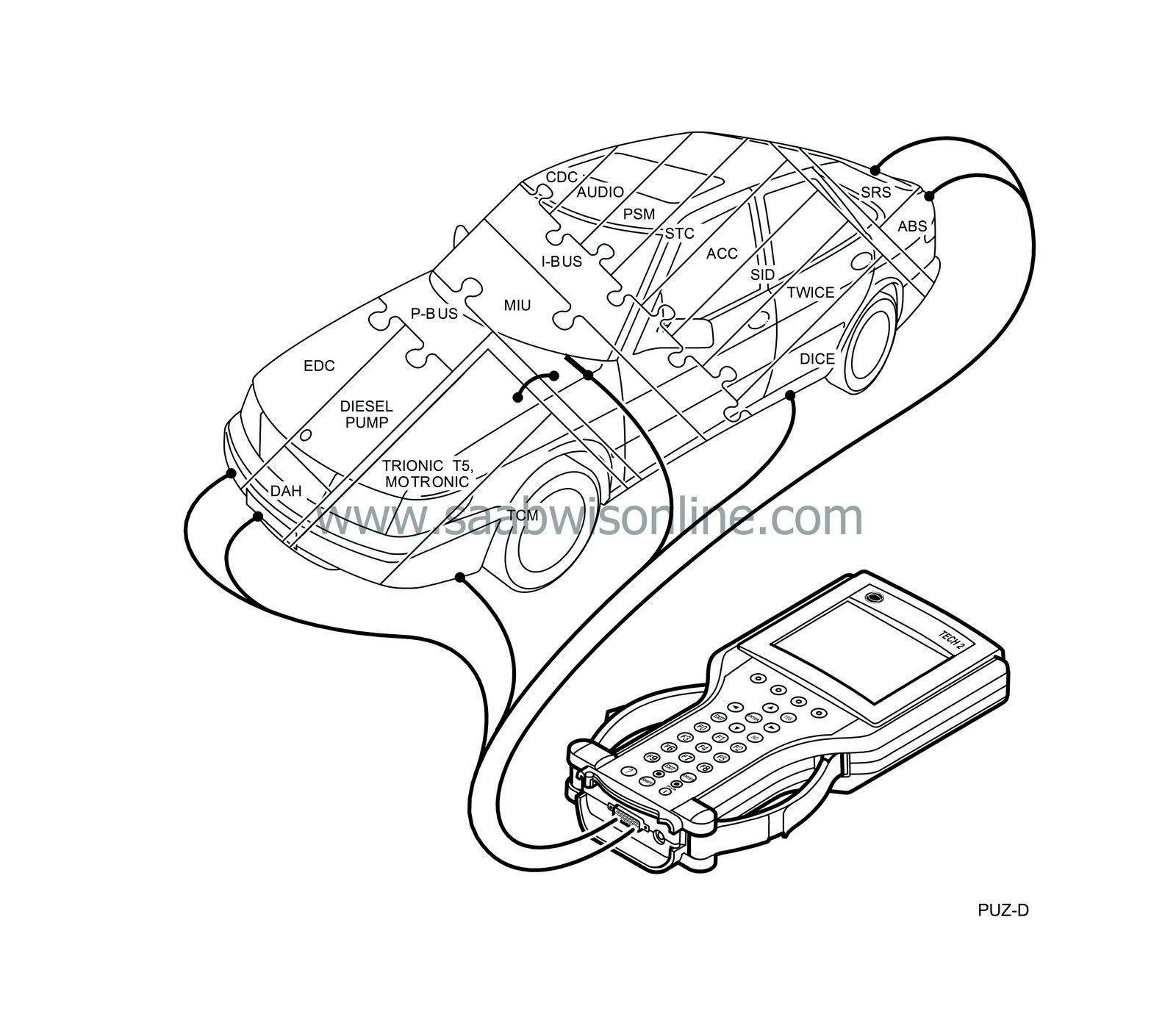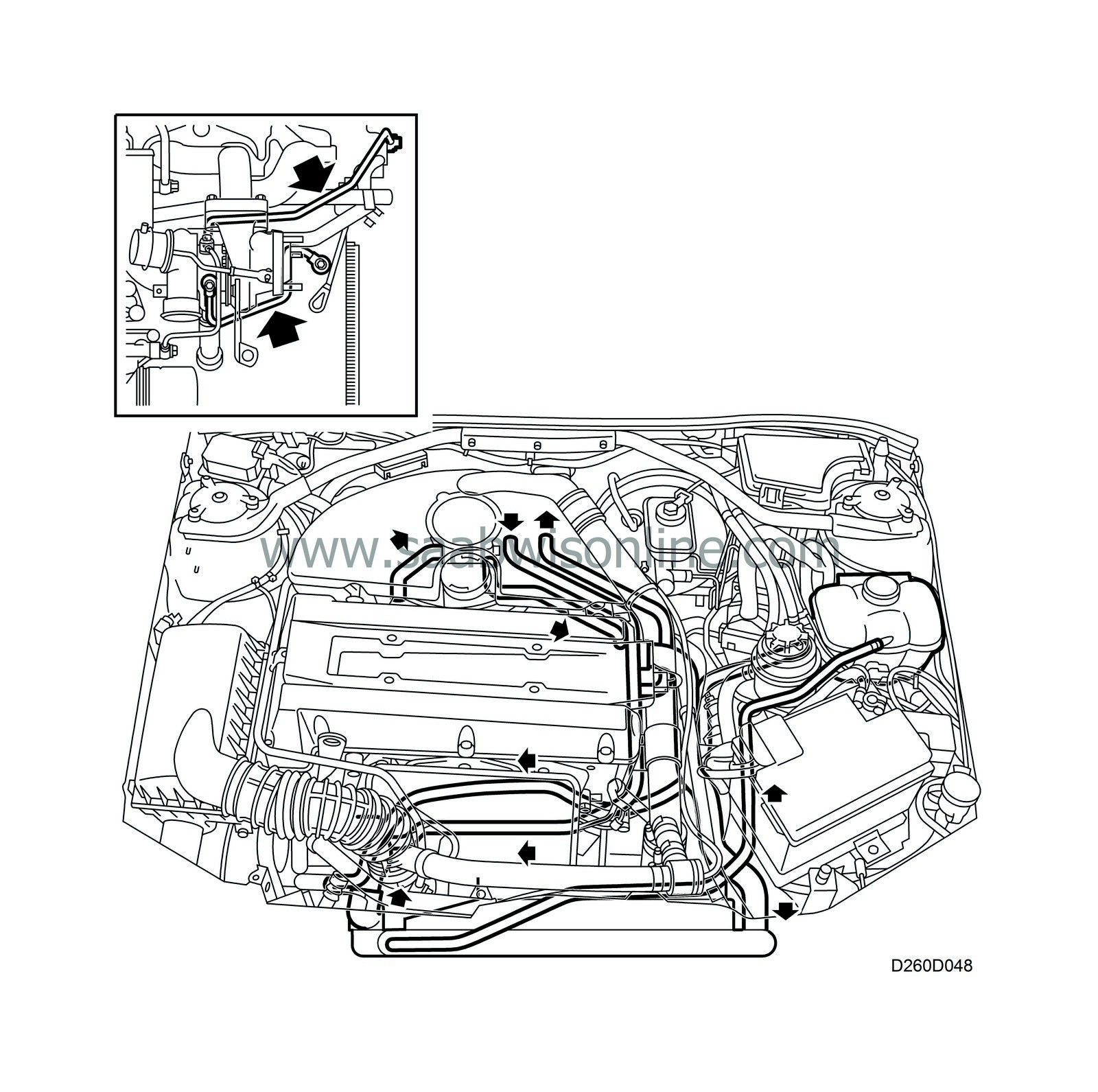System overview
| System overview |
| Brief description |
The cooling system is of the over-pressure type with cross-flow radiator and expansion tank.
The coolant pump is positioned on the right-hand side of the engine and driven from the crankshaft by a multigroove V-belt. The thermostat is located in a housing in the left-hand end of the cylinder head.
Expansion tank
The expansion tank is positioned on the left in the engine bay. It is connected to the coolant pump and the upper right-hand part of the radiator. The latter connection is designed to bleed air from the cooling system. The coolant in the expansion tank does not circulate through the system.Control modules
DICE controls the cut-in and cut-out of the radiator fan. Depending on the market, the car will be equipped with a 1-speed or 2-speed fan.On cars with a 1-speed fan, DICE controls the cut-in/cut-out of the radiator fan.
On cars with a 2-speed fan, DICE determines if the fan should run at high or low speed.
DICE uses the following information to control the function:
| - |
Coolant temperature
|
|
| - |
A/C pressure
|
|
| - |
Outside temperature
|
|
| - |
Vehicle speed
|
|
| P bus and I bus |

On the Saab 9-3, only a few of the control modules are connected to any of the bus systems, compared with the Saab 9-5.
The two powertrain systems, EDC and diesel pump, are not connected to the I bus, however. These systems require appreciably faster communication so that no delays will be noticeable, such as might occur in connection with engine torque limitation when changing gear.
Therefore, they are connected to a separate bus called the P bus (Powertrain Bus). The data transfer rate on the P bus is ten times faster than on the I bus.
The P bus is also connected to the MIU. The MIU ensures that information which is available on one of the buses will also be available on the other bus.



